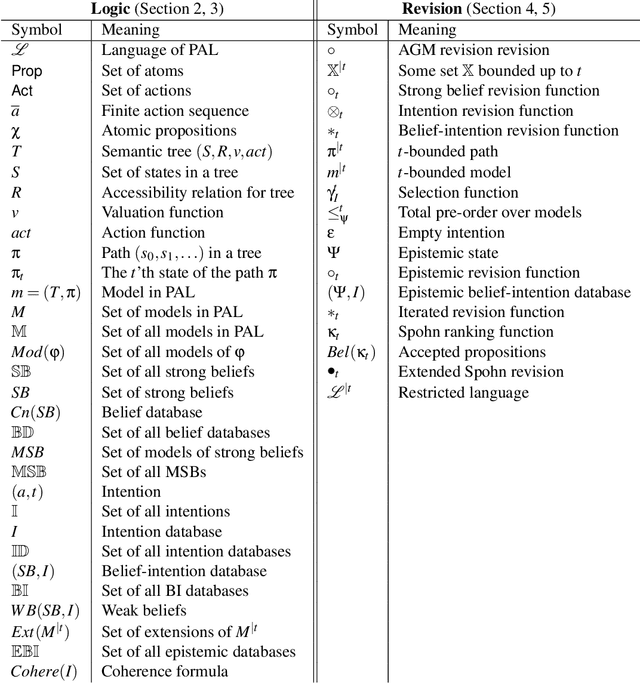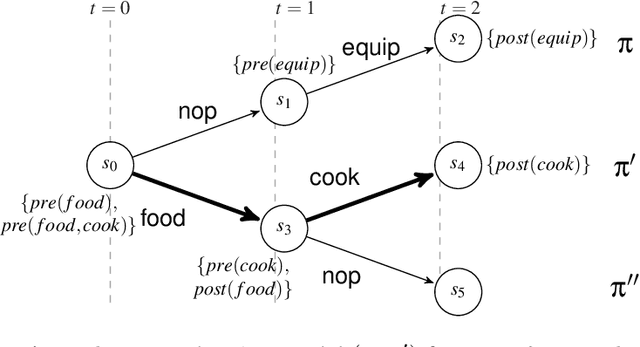Intention as Commitment toward Time
Paper and Code
Apr 17, 2020



In this paper we address the interplay among intention, time, and belief in dynamic environments. The first contribution is a logic for reasoning about intention, time and belief, in which assumptions of intentions are represented by preconditions of intended actions. Intentions and beliefs are coherent as long as these assumptions are not violated, i.e. as long as intended actions can be performed such that their preconditions hold as well. The second contribution is the formalization of what-if scenarios: what happens with intentions and beliefs if a new (possibly conflicting) intention is adopted, or a new fact is learned? An agent is committed to its intended actions as long as its belief-intention database is coherent. We conceptualize intention as commitment toward time and we develop AGM-based postulates for the iterated revision of belief-intention databases, and we prove a Katsuno-Mendelzon-style representation theorem.
 Add to Chrome
Add to Chrome Add to Firefox
Add to Firefox Add to Edge
Add to Edge